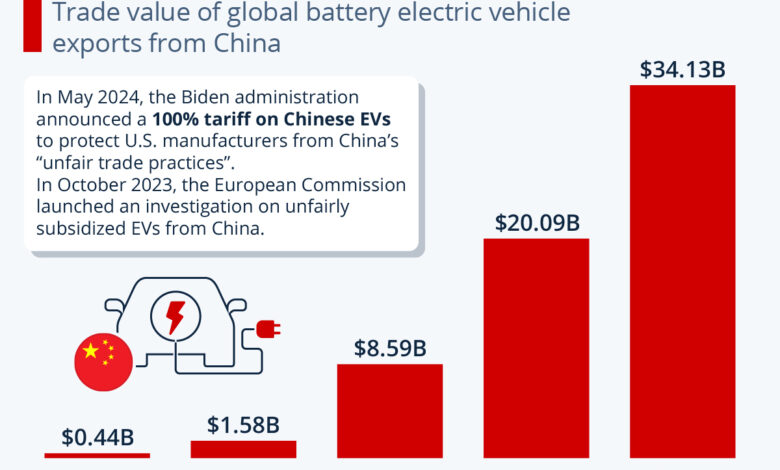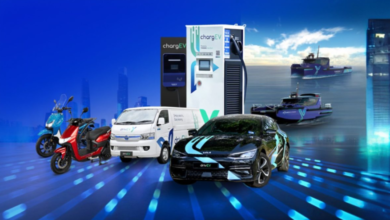Chart: Chinese EV Exports Surge as Policymakers Cry Foul

On Tuesday, the Biden administration formally announced its plans to increase tariffs on $18 billion worth of imports from China to “protect American workers and businesses” from what it considers “unfair trade practices”. The new bout of tariffs is targeted at sectors deemed strategic by the White House, including sectors where the Biden administration has invested heavily to create or sustain American jobs.
Perhaps the most noteworthy tariff hike affects electric vehicles, where duties are set to quadruple from 25 percent to 100 percent following a surge in Chinese EV exports over the past few years. Chinese exports of battery electric vehicles (BEVs) have quadrupled since 2021, reaching $34 billion last year. And while the U.S. has so far largely been unaffected by said surge – the country imported less than $400 million worth of EVs from China last year – the tariff hike can be seen as a preemptive strike to protect U.S. carmakers from new, potentially unfair competition from abroad.
“With extensive subsidies and non-market practices leading to substantial risks of overcapacity, China’s exports of EVs grew by 70 percent from 2022 to 2023 – jeopardizing productive investments elsewhere,” the White House statement reads, adding that the new tariff rate would protect the Biden administration’s investments in the EV market as well as jobs in the industry from “unfairly priced” Chinese EVs.
The U.S. is not the only country taking offense with China’s push into what it calls “new energy vehicles”. In October 2023, the European Commission launched an investigation on subsidized electric cars from China, trying to determine whether Chinese BEV value chains benefit from “illegal subsidization” that “causes or threatens to cause economic injury to EU BEV producers.” Earlier this month, EU trade commissioner Valdis Dombrovskis told Politico that the investigation was “advancing” and that tariffs could be imposed before the summer break.
In recent years, China has emerged as the world’s largest electric car market. To achieve this, the Chinese government has implemented a series of policies and incentives to promote electric vehicle (EV) adoption, including subsidies, tax breaks and a credit system that requires car makers to meet certain quotas not dissimilar to a carbon credit trading scheme.



